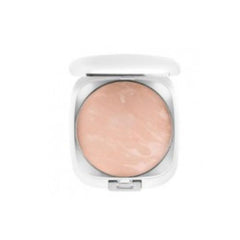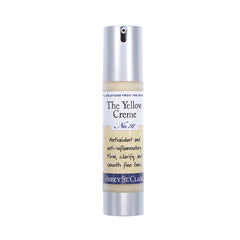Synthetic Makeup Brushes: A Great Alternative to Natural Hair Brushes

Using the right makeup brushes makes a world of difference in how your makeup looks—and how long it lasts. If you’re in the market for a new makeup brush, you’ll first need to decide whether you want a vegan makeup brush or a natural hair makeup brush.
Natural hair makeup brushes are made from animal hair such as goat, squirrel, horse, or mink. The hair that is sourced for natural hair makeup brushes is often a by-product or sourced via cruelty-free shaving.
Vegan makeup brushes are made out of synthetic fibers, typically nylon, taklon, or polyester. You’ll likely see the terms “vegan” and “synthetic” used interchangeably to refer to makeup brushes that do not use natural hair. We will use both terms throughout this article.
Whether you are using synthetic makeup brushes or natural hair makeup brushes, the value of a good brush in achieving the perfect application cannot be overstated. Even the best foundation, highlighter, or blush is only as good as the tool it is applied with.
While natural hair makeup brushes have long been touted as a beauty guru favorite, synthetic makeup brushes are rising in popularity. Those who prefer to avoid animal products now have an excellent alternative, as technology has advanced to the point where synthetic fibers rival the effectiveness of natural hair brushes.
What’s the difference between vegan/synthetic and natural hair brushes? Why are vegan brushes becoming so popular? Keep reading for our comprehensive overview of why vegan makeup brushes are such a wonderful alternative to natural hair.
Vegan/Synthetic vs. Natural: What’s the Difference?
The primary difference between synthetic and natural makeup brushes is, of course, the bristles themselves. But how do the bristles change the way your makeup is applied?
Natural hair brushes have long been a beauty staple for their three-part structure: each hair strand consists of the cuticle, cortex, and medulla. This porosity allows them to pick up and release more powder (such as when using highlighter, setting powder, or blush). They sometimes have a coarser feel, which may be irritating to sensitive skin.
Synthetic makeup brushes, on the other hand, do not have this same three-part structure. They are less porous, meaning these brushes may not pick up as much product as a natural hair makeup brush. If you are using brushes for liquid application, vegan brushes can help conserve your makeup and avoid waste. A finer, smoother texture also makes synthetic makeup brushes much more gentle on highly sensitive skin.
Regardless of whether you choose a synthetic or a natural makeup brush, finding a high-quality tool for each type of makeup application is key (read our Guide to Makeup Brushes for more detail on specific uses). If you have an allergy, skin sensitivities, or simply prefer to avoid animal byproducts, synthetic makeup brushes are an excellent alternative.
Four Reasons to Consider Vegan/Synthetic Makeup Brushes
Purchasing a good makeup brush is crucial to ensuring that you get an even, effective, and long-lasting makeup application. Here are four compelling reasons to choose vegan brushes:
1. Synthetic technology has come a long way.
Synthetic makeup brushes have advanced significantly. Despite differences in porosity, synthetic hair bristles now rival natural hair, making them just as efficient in a variety of applications. In fact, synthetic bristles are often preferred for precision application, as the bristles tend to gravitate toward each other and can be cut into angles.
2. Synthetic makeup brushes are cost-effective.
Natural hair makeup brushes can be costly: a quick Google search can easily yield natural makeup brushes priced as high as $200 or more. Synthetic makeup brushes, on the other hand, tend to be much more affordable. Even the best synthetic makeup brushes will be a fraction of the cost when compared to real hair brushes. When used properly, a high-quality synthetic brush at a lower price point can perform just as effectively—and leave extra breathing room in your makeup budget.
3. They are perfect for sensitive skin or allergies.
Vegan makeup brushes have soft, fine bristles that maintain their silky texture over time. This makes them an excellent choice for sensitive skin that may not react well to the texture of natural hair. Synthetic makeup brushes are also naturally hypoallergenic, providing a safe, healthy option for those who have allergies to animal hair.
4. They are easier to clean.
The high porosity of natural hair makeup brushes can often be a double-edged sword: because they absorb makeup more easily, they can also be more difficult to keep clean. Natural hair makeup brushes will need to be thoroughly cleansed on a regular basis to ensure that trapped makeup does not promote microbial growth.
In contrast, synthetic makeup brushes will not trap makeup as easily. This makes them much easier to wash and clean. You can keep your synthetic bristles clean by rinsing in water, or by applying a small amount of shampoo or gentle dish soap for a deeper wash.
How to Care for Synthetic Brushes
Because synthetic bristles are less porous than natural hair bristles, synthetic makeup brushes are less likely to promote bacterial and microbial growth. Of course, this doesn’t mean that they won’t need to be cleaned on a regular basis. Keeping your makeup brushes clean is an essential part of ensuring that your skin stays healthy (and that your makeup brushes last). Here are some tips to keeping your synthetic makeup brushes clean:
- Rinse your brushes regularly—A simple rinse under the faucet after each use goes a long way in keeping your brush free from trapped makeup. If you wear a lot of makeup on a daily basis, you should be rinsing your brushes daily. Rinsing at least once a week will be sufficient for those who wear less makeup (or don’t wear it every day).
- Wash your brushes regularly—Washing is a step above rinsing, introducing a cleaning agent to dissolve any trapped makeup from your bristles. Put a small amount of clarifying shampoo or dish soap into a cup and add warm water. Soak your brushes for at least an hour, swirling them around to loosen dried or trapped makeup. Rinse, gently squeeze out the water, and lay them out on a towel to air dry.
- Know when to replace your brushes—When cared for properly, synthetic brushes are long-lasting. But even synthetic brushes can wear down and lose their effectiveness. Knowing when to replace them will help ensure that your makeup application is smooth, effective, and waste-free. If you notice that your synthetic makeup brushes are not cleaning as well as they used to—or that the bristles are beginning to clump together—it may be time to replace them.
At Abbey St. Clare, we are passionate about helping our customers keep all aspects of their beauty routine as healthy and as effective as possible. The value of a high-quality makeup brush is the most overlooked aspect of makeup looking its best. Our line of vegan makeup brushes and natural hair makeup brushes are expertly crafted to provide a professional, even, and smooth application—each and every time. See our Guide to Makeup Brushes to learn more about the different shapes and sizes of makeup brushes, including how to use them.
Leave a comment
Comments will be approved before showing up.
Also in Abbey St Clare Blog

The Wheel is Turning. Abbey St. Clare has Closed.
Hello Friends,
The wheel is turning. Transitions are on the horizon. It is with regret that after almost twenty years, Abbey St. Clare is winding down as retirement and a relocation take place in the near future. We will continue taking orders through September 15.

Fix These 5 Hair-Washing Mistakes For Healthier Hair
Is your hair feeling brittle? Scalp dry? Locks not as lustrous as you want them to be? It’s possible you’re damaging your hair with five hair-washing mistakes.
If you follow these guidelines, you will see significant improvement in your hair and scalp health.

Pamper Your Skin and Elevate Your Mood With Essential Oils
Have you ever caught a whiff of cinnamon and felt a boost in your mood instantly? Do you feel calmer and more at ease when using lavender lotion before bed? If you said yes, it’s not just a figment of your imagination!
Ask anybody who uses essential oils regularly, and they’ll probably agree: these natural botanicals can have powerful, positive effects on your mood and overall wellness.



